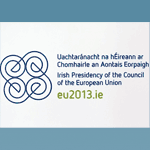 Europe’s Education Ministers have adopted Conclusions on the social dimension of higher education. The EU Council of Education Ministers in Brussels was chaired by Irish Minister for Education and Skills, Ruairi Quinn T.D.
Europe’s Education Ministers have adopted Conclusions on the social dimension of higher education. The EU Council of Education Ministers in Brussels was chaired by Irish Minister for Education and Skills, Ruairi Quinn T.D.
At the second and final Education Council to be held under the Irish Presidency the European Education Ministers focussed on the importance of securing more equitable access to higher education. The Conclusions adopted build on those discussed in May 2010 under the Spanish Presidency on the social dimension of education and training generally.
At the Council meeting, Minister Quinn updated his European colleagues on the progress of negotiations on ”Erasmus for All”. Delegates also discussed the Youth Employment Initiative.
During the meeting Ministers debated “Ensuring a teaching profession of the highest quality to underpin the achievement of better learning outcomes” and were addressed by international experts, Pasi Sahlberg, Finnish Education Expert, and Christine Blower, President of the European Trade Union Committee for Education andGeneral Secretary of the National Union of Teachers.
Afterwards, Minister Quinn said: “I am particularly pleased that we have adopted these Conclusions today. There are still too many capable students not participating in higher education due to their socio-economic circumstances, insufficient systems of support and guidance, and other obstacles. As well as increasing the risk of unemployment and social exclusion, this represents an unnecessary waste of human potential. The Conclusions adopted today will address this and bring benefits to societies across the EU.”
Ireland holds the Presidency of the Council of the EU until 30th June 2013.
A number of legislative priorities in education have been identified for the course of the Presidency. These are:
- Regulation establishing “Erasmus for All”
- New Directive to amend Directive 2005/36 on the recognition of professional qualifications
- Regulation on the European Social Fund (ESF) and the European Globalisation Adjustment Fund (EGF)
- Decision on the Strategic Innovation Agenda of the European Institute of Innovation and Technology (EIT) & Regulation amending 2008 Regulation which established the EIT.